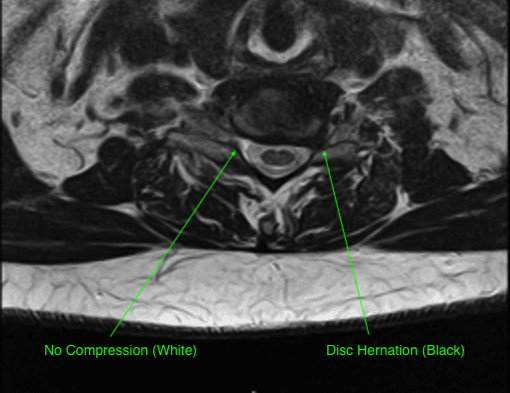Cervical Radiculopathy
Cervical radiculopathy is a condition that affects the nerves in your neck (cervical spine). It occurs when one of these nerves gets irritated or pinched, usually due to a problem with the discs or bones in your spine. This can lead to pain, numbness, or weakness that starts in your neck and can travel down your shoulder, arm, and even into your hand.
Imagine the nerves in your neck as a bunch of electrical wires. When these wires are working properly, they send signals to and from your brain, allowing you to move and feel things normally. But if something presses on or irritates these nerves, it can disrupt the signals. This is what happens in cervical radiculopathy.
The most common causes of cervical radiculopathy include:
Herniated Disc: The discs between the bones in your spine can sometimes bulge out or rupture, pressing on the nearby nerve.
Bone Spurs (‘Osteophytes’): As we age, the bones in our spine can develop extra growths called bone spurs. These spurs can pinch the nerves.
Degenerative Disc Disease: Over time, the discs in your spine can wear down, leading to less space for the nerves and potential pinching. This reduced space around the nerve is called ‘Stenosis’.

Left Sided Disc Herniation C6-7 Compressing the Left C7 Nerve Root
Symptoms:
- Worsening Neck Pain
- Left-sided Arm Pain
- Left Tricep Weakness
Symptoms can vary depending on which nerve is affected, but they often include:
- Pain: This can be sharp or burning and might radiate down your arm.
- Numbness or Tingling: You might feel this in your shoulder, arm, or hand.
- Weakness: Some people experience weakness in the muscles of the arm or hand.
Depending on the severity of the condition, treatment for cervical radiculopathy can range from physical therapy and medications to manage the symptoms to more advanced options like injections or surgery. The goal is to relieve the pressure on the nerve, reduce pain, and improve function.
Conservative treatments are typically used when the symptoms are milder, have started only recently, are gradually improving, and where no weakness exists.
Surgical treatments are typically recommended when:
- pain is more severe
- pain is more longstanding
- pain is not responding to conservative treatments or
- presence of weakness.
Learn more about surgical treatments for cervical radiculopathy and A/Prof Buckland’s outcomes below.

